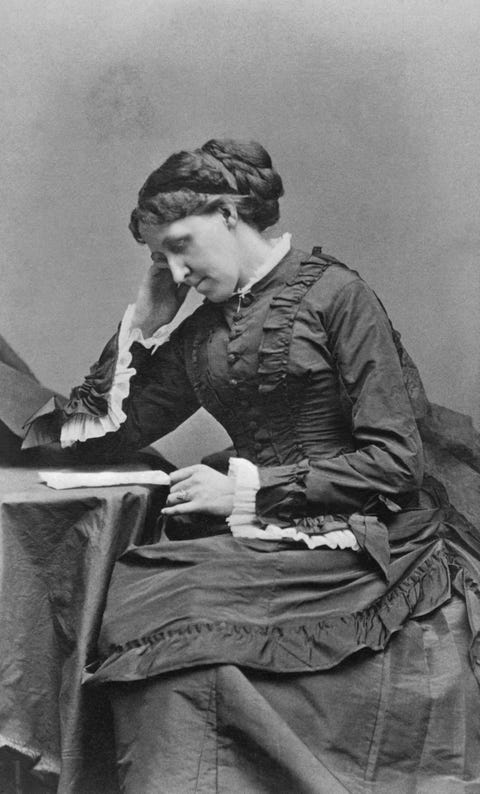Little Women
I recently told a group I was having a potluck with that I
was going to see Little Women. One of the guys said I love that movie.
Now, for a couple of reasons, I knew he was confused. Brien
is the kind of guy that watches the Bears and roots for the Sox. Come to find
out, he meant the movie Hidden Figures—which made me think that both titles
seem to diminish the role of women.
But, I digress.
The weather was so nice, a friend and I rode our bikes there—to
discover it was sold out. So we purchased tickets on-line and planned to go
later.
Again, I digress. Which is life: a series of digressions. Little Women as the book and movie
proves, is a series of small moments in lives considered hidden and little. Indeed,
they paint, play the piano, write, perform—but this is in a world where they
have no agency. They cannot vote and are limited in the occupations they might
choose. The man is the head of the house, even if they make unwise decisions
and go off to war. We see this in the example of the Hummel household where the
German woman is trying to hold things together in the midst of abject poverty
and sickness (that takes the baby).
Does this rendition of Little
Women bring anything new to the screen? Yes. Greta Gerwig wanted to give
the story context and brings to the forefront this issue of agency. In one
scene Jo despairs
So what does she do? She wrings her heart out onto the page,
and purportedly writes Little Women.
From HistoryExtra, Anne Boyd Rioux is a professor of English
in New Orleans and the author of Meg, Jo, Beth, Amy: The Story of Little Women
and Why It Still Matters (Norton, 2018).
When the time came to write Little
Women, Alcott included a scene where Marmee tells Meg and Jo that “to be loved
and chosen by a good man is the best and sweetest thing which can happen to a
woman,” but also that it is “better to be happy old maids than unhappy wives”.
Alcott intended to have Meg and Amy marry but wanted Jo to be a “literary
spinster” like herself. Her fans and her publisher had other ideas, however.
When Alcott wrote the second part of
Little Women, she resented the pressure to marry Jo off: “I won’t marry Jo to
Laurie to please anyone,” she insisted. Instead, Alcott hatched a plan to give
Jo “a funny match”. She was aware of the potential reaction to this decision,
writing to a friend: “I expect vials of wrath to be poured out upon my head,
but rather enjoy the prospect.” The funny match in question – to the older,
rather prosaic Professor Friedrich Bhaer – has dumbfounded generations of
readers. But Alcott was sending her young readers an important message. First,
they shouldn’t feel compelled to marry the first eligible young man to propose.
(Having Jo reject Laurie was a bold move in post-Civil-War America, where the
numbers of marriageable men had plummeted.) And second, marriage was best when
it allowed two people to work side-by-side as companionate equals, as Jo and
Friedrich do running their Plumfield School.
But, don’t be alarmed, the new release of Little Women has romance and it’s nice
to see how things line up in the end. Really, there are no surprises here—but we
do hear Jo’s lament. I feel that this film would do Louisa proud.

Comments